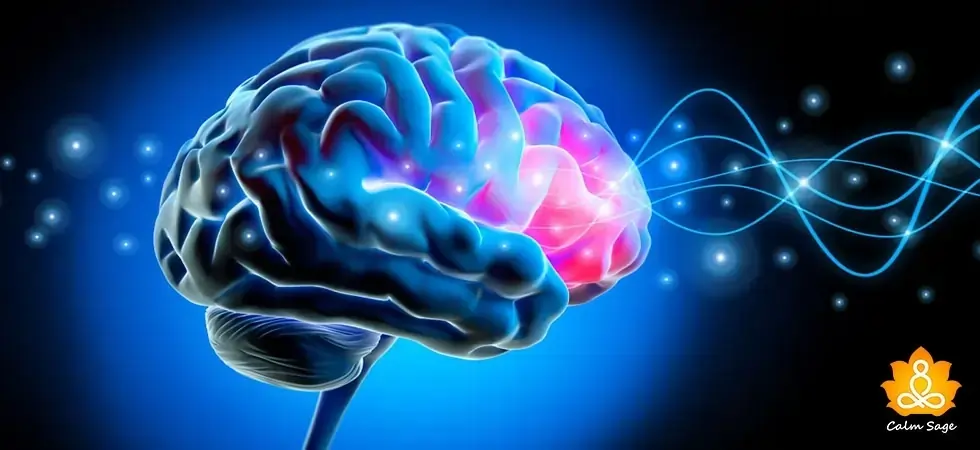What is Procedural Memory: Examples, and How It Works
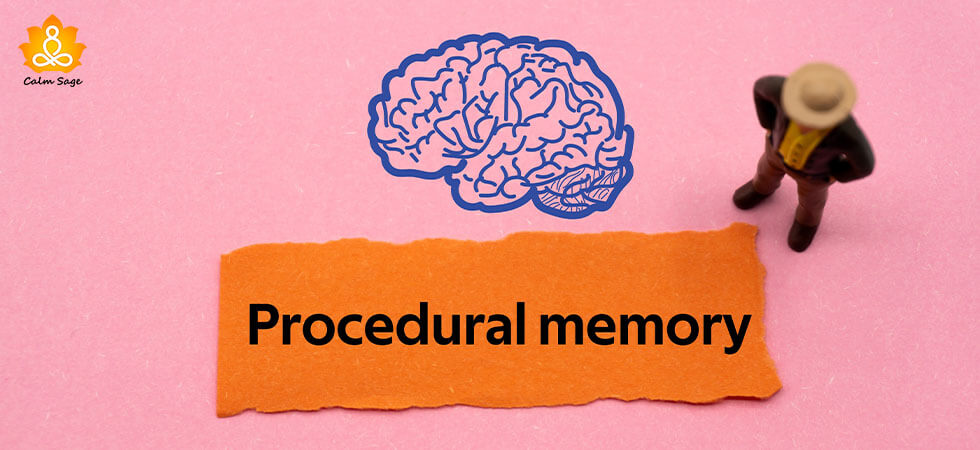
Are you the curious type fascinated by how our memory works and how some tasks are automatically done, like writing, brushing your teeth, tying shoelaces, etc? If so, today we will dive into the hidden world of procedural memory that stays hidden.
Wondering why we say so? It is because episodic and semantic memory are two famous forms, while procedural or implicit memory, the unsung hero impacting our lives and well-being daily, is always hidden.
So, What is Procedural Memory?
Procedural memory is part of long-term memory that encodes and retrieves information and helps perform tasks like brushing teeth, riding a bicycle, etc, that don’t require conscious thought or effort. By practicing these activities, you make your brain learn the instructions needed to perform these tasks.
Simply put, implicit memory AKA procedural memory is the memory that helps automatically perform daily activities.
How does procedural memory work, and our brain retrieves information?

Stored in the basal ganglia, the part of the brain responsible for movement coordination, and other brain regions, such as the cerebellum and motor cortex, procedural memory is long-term memory.
When a new skill like riding a bike, writing, or reading is learned, the brain processes the information, creates neural connections, and saves the information in short-term memory. When you repeat these skills, these connections are strengthened, and neural pathways get refined, making the skill automatic.
This means without putting in a conscious effort; you can perform the activity automatically as the brain is now well equipped to execute the task independently. If this makes you think implicit memory is only related to mundane tasks, remember it also impacts creativity and problem-solving activities. It also has a substantial impact on those struggling with neurological injuries.
Interesting facts about procedural memory
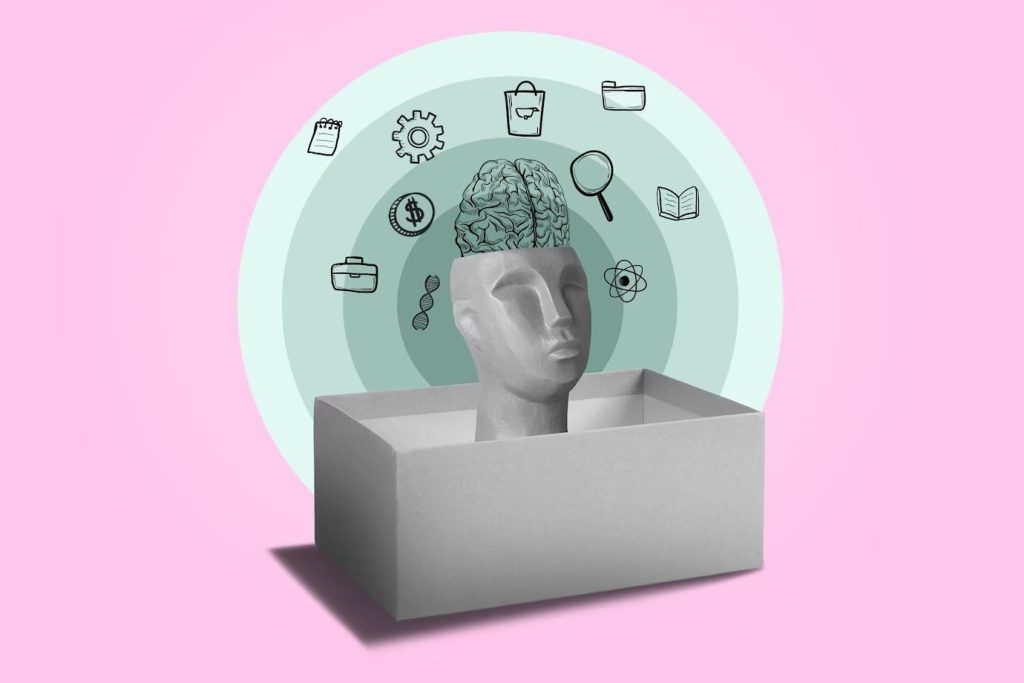
Unlike semantic and episodic memory, long-term memory or procedural memory is independent. This is why individuals who suffer from amnesia can still perform tasks learned in the past. However, if these learned tasks are not regularly performed, the neural connection weakens, affecting performance.
Also, when the brain receives appreciation, the pathways are reinforced. If the action leads to failure, the brain learns and fine-tunes the procedural memory improving performance in the future.
Procedural memory is context related. If you learned to play the violin while standing, you might find it difficult if you try to play it sitting initially. This is because the brain associates skills with context and might take time to adjust to different situations.
Examples of Procedural Memory
Procedural memory is involved in the performance of a variety of actions we do without conscious efforts. Here are some examples:
- Writing
- Typing
- Playing an instrument or sport
- Driving
- Reading
- Cooking
- Brushing your teeth and performing your morning routine
- Tying shoelace
- Eating food.
These examples explain how procedural memory helps perform various tasks allowing the conscious mind to focus on other activities. As we keep learning and practicing new tasks, procedural memory continuously adapts and improves, making us proficient.
How to improve and expand procedural memory?
Practice, focused learning, and task retention strategies help improve and expand your procedural memory. Here are some tips you can use to strengthen your procedural memory:
1. Practice:
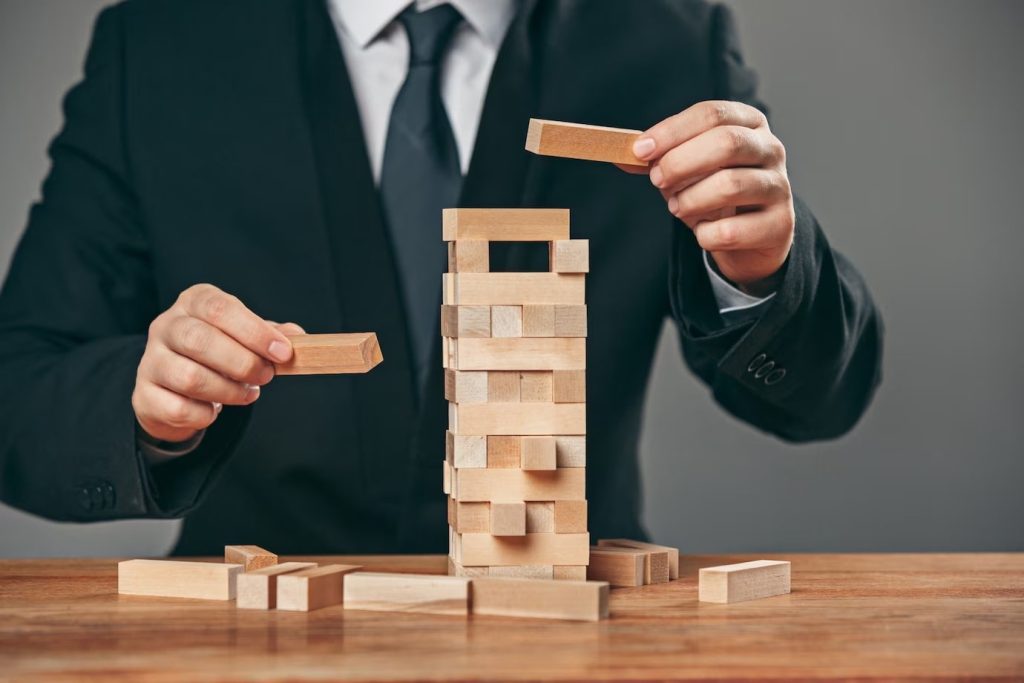
Repetition and regular practice are the keys to strengthening procedural memory. The neural connections are solidified when practicing a task repeatedly, improving the task.
2. Divide tasks into small chunks:
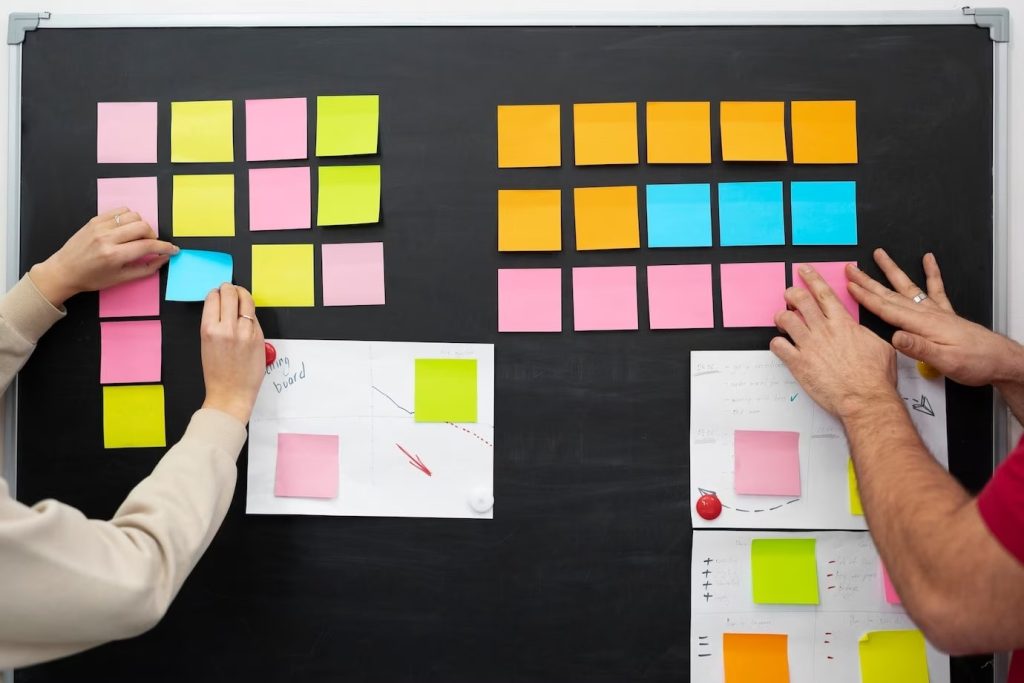
Break down the learning process into smaller, manageable steps when perfecting a skill. As you master each step, you can focus on the details, thus making the connection stronger and preventing getting overwhelmed.
3. Visualize:

To improve and expand procedural memory, use visualization. As you mentally rehearse the steps and imagine yourself doing them, procedural memory registers it efficiently, allowing you to perform each action precisely.
4. Use Mnemonic Devices:
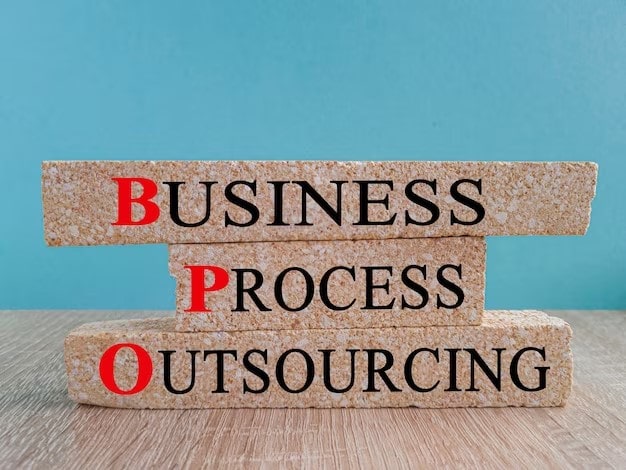
What did you use when remembering a complex poem or periodic table in school? Right, you either created a mnemonic phrase or an acronym. So, to improve implicit memory, you need to do the same.
5. Get Feedback:

Positive feedback helps refine procedural memory. It helps identify areas for improvement and fine-tune skills. As you get input on how you perform the task, you make improvements to make it more acceptable.
6. Practice in Different Situations:

Procedural memory is context-specific. Therefore, to perform the learned skill in different situations, practice them in various settings.
7. Apply the skill in day-to-day activities:

To make learning a new skill permanent, practice and apply it as much as possible. Read books, watch, and talk to others about the task. This will make the neural pathways stronger.
8. Sleep and Rest:

Proper sleep plays a vital role in retaining information. When you sleep, your brain strengthens procedural memories. This makes taking proper rest vital.
9. Stay motivated and Persistent:

Learning any skill takes time. Be patient with yourself. Do not get discouraged if you fail or when you make slow progress. Keep working on it. You will excel in the skill and improve procedural memory with consistent effort.
10. Avoid Distractions:

Focus is a must for learning. To ensure your brain registers the learnings, minimize distractions. It will help the brain to fully concentrate on encoding procedural memory.
11. Add Variation to Practice Routines:

While repetition is crucial, varying your practice routines can prevent plateauing and keep the brain engaged. Challenge yourself with different exercises and situations.
Alongside following these tips, always remember each individual learns at their own pace, so be kind to yourself throughout the learning process. The more you enjoy the process and repeat the skill, the more proficient your procedural memory will be. Embrace the journey of learning and expanding your procedural memory.
What Affects Procedural Memory?
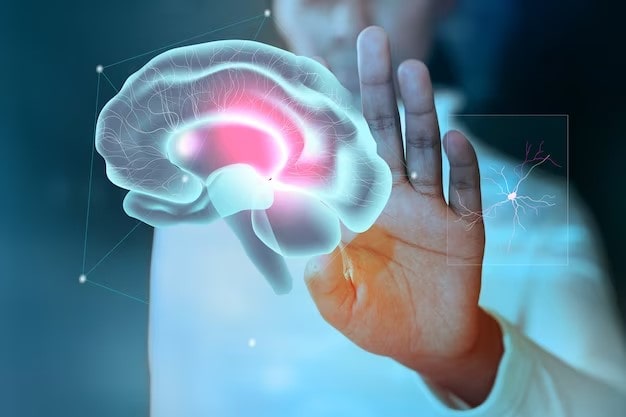
Procedural memory is generally long-term and can remain intact even when other types of memory are impaired. However, certain neurological disorders can impact it. Here is a list of some disorders that might affect procedural memory:
Parkinson’s Disease is a neurodegenerative disorder affecting movement and coordination. The well-learned motor skills will be preserved in procedural memory. However, individuals with Parkinson’s disease may experience difficulties learning new motor skills and adapting to changes in familiar movements due to the impairment of the basal ganglia.
Huntington’s Disease is an inherited genetic disorder affecting the basal ganglia, leading to involuntary movements (chorea) and cognitive decline. In the starting stage of the disorder, procedural memory for already learned skills may remain as it is, but procedural memory can also be affected as the disease progresses.
Alzheimer’s Disease primarily affects episodic memory and cognitive functions, but procedural memory can be affected when the disease progresses.
Dementia with Lewy Bodies (DLB) is similar to Alzheimer’s and Parkinson’s. The procedural might not be affected in the early stages, but a person may lose procedural memory as the disease grows.
Frontal Lobe Lesions is damage to the frontal lobes of the brain. It generally happens due to injury or stroke, affecting executive functions and motor skills, thereby impacting the ability to initiate and plan complex actions, thus affecting procedural memory.
Note – The impact of these disorders on procedural memory can vary depending on the stage and severity of the condition.
Procedural Memory vs. Declarative Memory
Often confused with declarative memory, procedural memory differs from declarative memory in various senses. Let’s explore the differences between these two memory systems:
Procedural Memory (implicit memory) is the memory system responsible for learning and performing motor skills, habits, and other automatic behaviors without conscious awareness or effort. It involves remembering “how” to do something, such as riding a bike, typing on a keyboard, or playing an instrument. This memory is acquired through practice, repetition, which develops neural pathways.
At the same time, Declarative Memory (explicit memory) is the memory system responsible for storing and recalling facts, events, and experiences that can be consciously brought to mind and verbally expressed. It includes episodic and semantic memory and is formed through conscious encoding and intentional efforts to remember information.
Key differences between Procedural memory and Declarative memory
| Procedural Memory | Declarative Memory |
|---|---|
|
|
|
|
|
|
|
|
Both types of memory play crucial roles in our daily lives and contribute to our overall cognitive abilities.
How Procedural Memory Affects Our Lives?
Procedural memory shapes our lives in numerous ways. It impacts our daily routines, skill development, task efficiency, and overall cognitive functioning. Below through some examples, we explain how procedural memory affects our lives:
1. Skill Acquisition:
Procedural memory is crucial for learning and mastering different skills. From simple tasks like tying shoelaces and brushing teeth to complex activities like playing a musical instrument, driving a car, or operating a computer, procedural memory makes performing these tasks without conscious efforts possible. As you learn and refine the skills, procedural memory helps you become more proficient and confident in these activities, making you a pro in whatever you do.
2. Habit Formation:
Most activities we perform daily without any effort are due to procedural memory. As we repeatedly perform different tasks, habits are formed, which become automatic through repetition and reinforcement.
Whether baking, making tea, or following a routine, procedural memory allows us to perform these habits without conscious thought, freeing up mental resources for other tasks. This means a habit can be changed by weakening neural pathways and learning new skills that help grow and progress.
3. Reduced Cognitive Load:
Procedural memory helps reduce cognitive load by allowing us to perform routine tasks effortlessly. When certain actions become automatic, we don’t have to consciously think about them, leaving our working memory free to focus on more complex or novel challenges. This is why we can have conversations while walking or driving without being distracted by physical actions, and sometimes, even without putting in any extra effort, we easily reach places we regularly visit, making us wonder how that happened.
Have you ever noticed that on your way back home, your hands automatically turn the steering wheel in the direction the home is? You will understand how procedural/implicit memory works if you pay attention and be mindful.
4. Helps Perform Better Even When Under Pressure:
Procedural memory is particularly valuable during high-pressure situations. Athletes, musicians, and professionals rely on procedural memory to perform well under stress. Once a skill is well-practiced and ingrained, it can be executed instinctively, even when faced with distractions or time constraints.
5. Retains Skills Even When You Suffer From Neurological Disorders:
When neurological disorders like Alzheimer’s or dementia are faced, declarative memory (e.g., memory of facts and events) is often affected. However, procedural memory stays intact primarily, helping us perform regular tasks learned over the years, like playing an instrument or engaging in hobbies, even as other cognitive functions decline.
6. Physical Rehabilitation:
Procedural memory plays a crucial role in physical rehabilitation after injuries or surgeries. It helps individuals relearn motor skills and regain independence in their daily activities.
7. Enhancing Creativity and Problem-Solving:
Procedural memory allows for automating basic skills. It frees up mental space for higher-order thinking. With less focus on the mechanics of a task, we can devote more cognitive resources to creative thinking, problem-solving, and innovation.
Procedural Memory – A Must For Performing Daily Tasks
In conclusion, procedural memory significantly influences our lives by enabling us to perform tasks efficiently, develop skills, and build habits. It helps us streamline our daily routines, perform under pressure, and retain specific abilities despite cognitive challenges. By understanding how powerful procedural memory is, we can build new habits and learn new skills.
The above explanation of procedural memory clearly explains the brain’s efficiency and how we can leverage this aspect of memory to enhance our overall cognitive functioning and productivity.
Procedural memory is invaluable to our cognitive abilities and should not be disregarded. From simple responsibilities to complex abilities, it profoundly affects our daily lives.
Next time you tie your shoelaces, ride a bicycle, brush your teeth, or play a favorite tune on the piano, take a moment to appreciate the incredible power of procedural memory that is working behind the scenes making our lives easier.






